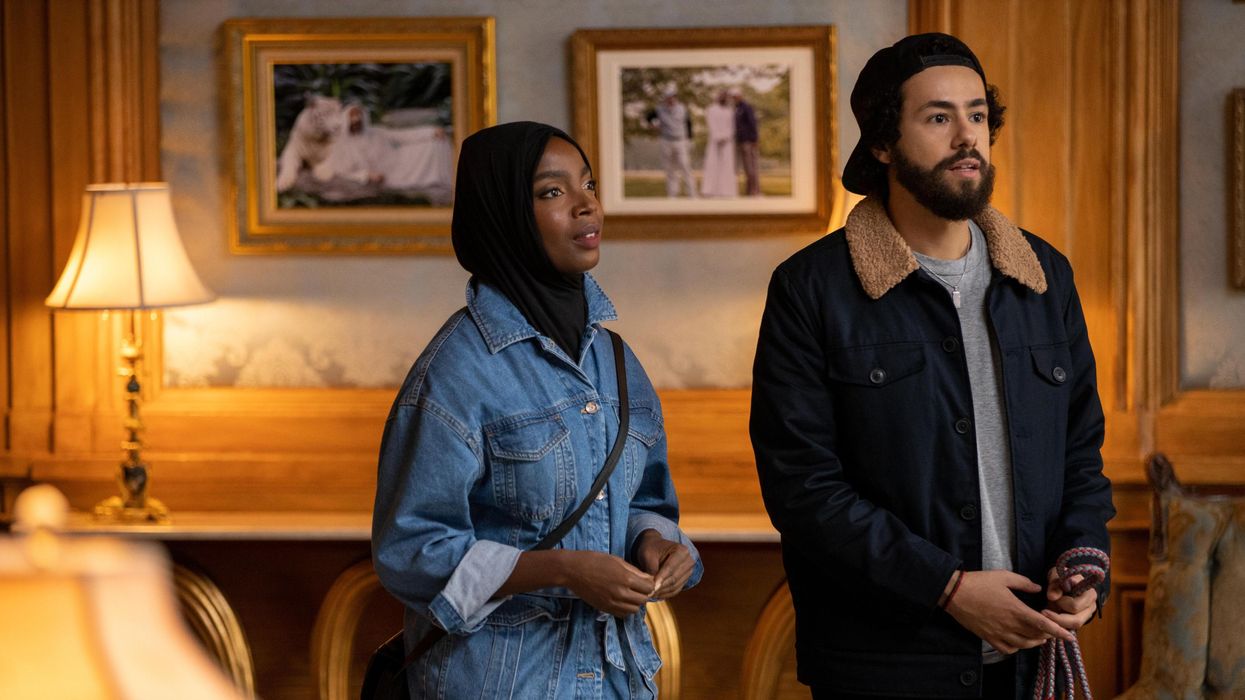CNN) -- Despite making up one quarter of the world's population, Muslims are severely underrepresented on television -- and when they are represented, they're depicted as shallow stereotypes, according to a new study.
Researchers from the University of Southern California's Annenberg School for Communication and Journalism analyzed over 200 TV series that aired between 2018 and 2019, hoping to understand how Muslims were portrayed on popular shows.
They found that only 1% of speaking characters were Muslim -- whereas 25% of the world's population is Muslim.
And across the 200 TV series, only 12 series regulars were Muslim, the study found. Seven of those Muslim series regulars were perpetrators or targets of physical violence -- part of the pervasive stereotyping of Muslim characters, according to the researchers.
The research focused on scripted, episodic series from the US, United Kingdom, Australia, and New Zealand. A total of 87% of the shows studied didn't include even one Muslim speaking character, says the study.
The Muslims that were portrayed tended to follow stereotypes -- and they lacked the diversity that characterizes the real Muslim population, according to the study. Over half of Muslim speaking characters were men, and they were mostly Middle Eastern. Very few Muslims were identified with the LGBTQ community and none were shown with a disability, the researchers found.
The researchers identified several tropes that dominated the depiction of Muslim characters on TV. Muslims tended to be depicted as "foreign," speaking accented English or not speaking English at all. Almost a third of Muslim speaking characters were violent against other characters -- and 40% were the targets of violence.
Muslim women tended to be depicted as "fearful and endangered," according to the study. They were shown mostly as the victims of threats and violence.
These portrayals have real-life impact on the ways that viewers think about Muslims, argued the researchers. The Pew Research Center has consistently found that Americans have the most negative views of Muslims as compared to other religious groups.
"Attitudes toward Muslims may be formed by a variety of factors," they wrote. "However, one in particular, the mass media, is a component within the control of storytellers and content creators."
The researchers pointed to some recent series that have countered these stereotypes, like Hulu's "Ramy," a comedy series about a young Egyptian American man living in New Jersey.
And they called for greater and more complex portrayals of Muslim characters on TV, particularly those created by Muslim filmmakers.
"Centering stories on Muslim characters will require changes both on screen as well as behind the camera," wrote the research team.
"Across the sample in this study, it was clear that few if any writers were Muslim. Working with Muslim creatives to develop and bring stories about Muslims to the screen is essential to increasing authentic portrayals."
The-CNN-Wire
™ & © 2022 Cable News Network, Inc., a Warner Bros. Discovery Company. All rights reserved.
- Michael Cassidy & Mike Mosallam Celebrate Diversity In New ... ›
- Muslim Women Athletes Condemn Hijab Bans, Fight For Inclusive Clothing in Sports - Advocate Channel ›
- Kausar Mohammed Talks 'The Flash' & Queer Muslim Representation | AdvocateChannel.com ›
- Muslim Mayor Says He Was Turned Away From White House Eid Celebration | AdvocateChannel.com ›
- Ramadan Etiquette Guide For Non-Muslims ›


















































